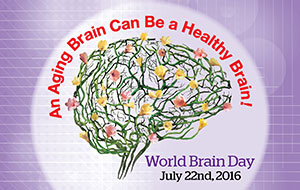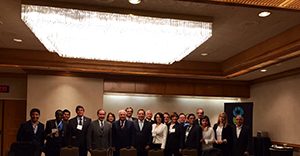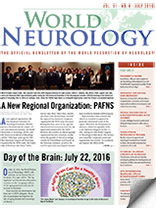By Steven L. Lewis, MD, Editor, and Walter Struhal, MD, Co-Editor
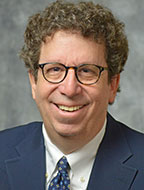
Steven L. Lewis, MD
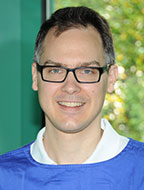
Walter Struhal, MD
We are pleased to introduce this issue of World Neurology. In this issue, Raad Shakir, MD, president of the World Federation of Neurology (WFN), provides us with a historical view of the long-standing and important collaborative relationship between the World Health Organization and the WFN, working together for the overall goal of improving brain health.
Marco T. Medina, MD, and Gustavo C. Román, MD, update us on the Pan-American Federation of the Neurological Societies, an organization with the vision to reach the highest level of neurological health in all the countries of the American continent.
Prisca-Rolande Bassolé, MD, and Yannick Fogang Fogoum, MD, provide their insights and opinions (from their standpoint as young African neurologists) about their hopes for the African Academy of Neurology, an organization whose inaugural meeting was less than one year ago.
Mohammad Wasay, MD, and Professor Wolfgang Grisold, MD, secretary-general of the WFN, remind us about the upcoming World Brain Day 2016: “Brain Health in an Aging Population.”
Dr. Román and Rodrigo Pardo-Turriago, MD, report on the XII Annual Colombian Congress of Neurology and the development of the guidelines for the diagnosis and treatment of Zika virus-associated Guillain-Barré syndrome in Colombia that was prepared for the Ministry of Health of Colombia. This issue also features a report on the breaking news session on Zika virus held at the recent European Academy of Neurology meeting in Copenhagen, Denmark.
Jacques Reis, MD, Serefnur Öztürk, MD, Dr. Román, and Peter Spencer, PhD, provide a detailed overview of the history and ongoing activities of the Environmental Neurology Applied Research Group of the WFN.
In our regular columns, Katharina M. Busl, MD, MS, reviews the recent book by Eelco F. M. Wijdicks, MD, on emergency and critical care neurology, and in our history of neurology column, Peter Koehler, MD, PhD, discusses the pioneering medical and biological insights of an 18th century European physician from his travels to Surinam.
Also in this issue, Sarosh M. Katrak, MD, and Steven L. Lewis, MD, provide their nominating statements for the position of elected WFN trustee, to be voted on by the WFN delegates in Prague, Czech Republic, in September 2016.
Finally, two neurological giants are celebrated and memorialized in this issue. Johan A. Aarli, MD, (eighth WFN president) and professor Shakir report on the life and legacy of Lord John Walton, MD, who served as the fifth WFN president, while Dr. Katrak and Bhim Sen Singhal, MD, report on the life and accomplishments of Professor Noshir H. Wadia, MD.
We hope you enjoy reading this issue of World Neurology. We look forward to continuing to receive your outstanding submissions and helpful suggestions for the benefit of all of the readers of World Neurology.
